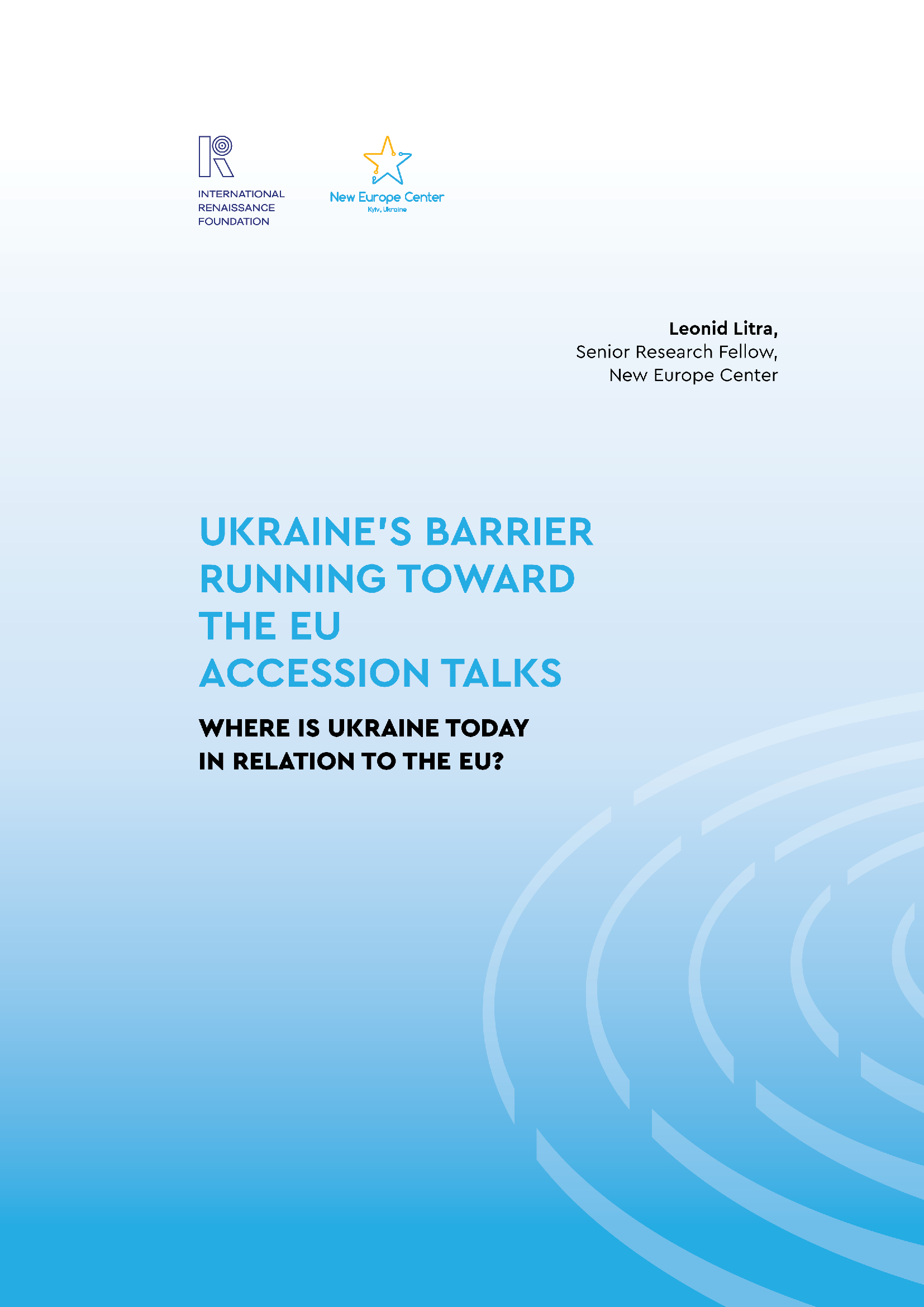
On June 22, the EU finally issued its oral update on the implementation of the seven steps which came together with the candidate status for Ukraine. The oral update is a reality check that is meant to give Ukraine a sense of how the EU is assessing its progress and offer some time to address the shortcomings in the implementation before the October enlargement report which will likely give an understanding of whether to start accession talks with Ukraine or not.
In short, the update found out that two of seven steps are “completed” – judiciary and media; one is “good progress” – constitutional court, and the rest are labeled with “some progress” – anti-corruption, anti-money laundering, de-oligarchization, and the national minorities. The results of the EU preliminary assessment is widely matching the results of an independent assessment of the civil society coalition “Candidate Check”, which was initiated by the New Europe Center and is implemented by Ukrainian think tanks and civil society organizations.
The fact that Ukraine is making progress irrespective of the war with Russia should be praised and supported as no other country implements reforms under such conditions. That is what the EU basically does by having a constructive approach to assessing the implementation of the seven steps and the guidance for further activities. But what lies beyond the political decision to be positive in assessing the progress?
Despite the efforts of very few people to keep the process coherent and consistent with the aim to start the accession talks, the EU integration, especially at the high political level, often reminds the piano which is in the airport, where random tourists play one song or two – meaning they make one or two statements on the EU integration – and take their flight: take care or other, more urgent issues. This became, for good reason, obvious in recent months when the NATO debate was propelled in view of the approaching Vilnius summit of Alliance, and the EU was slightly left behind.
Are the EU and Ukraine on the same page?
In order to contextualize the accession efforts of Ukraine, one needs to consider a few arguments. The quick and “easy” candidate status somehow changed the perspective of what is achievable and what is not. Some silly statements from Ukrainian officials about joining the EU in two years are quite telling. The fact that some officials and politicians are still treating EU accession as an exclusively political process, makes a disservice to Ukraine. On top of that, there is a tendency to think Ukraine is more advanced than the candidate countries in the Balkans – which are stuck in the accession process. Comparing the results of last year enlargement reports with the EU assessment of the questionnaire submitted last year by Ukraine shows that Kyiv is lagging behind all the candidate countries in the Balkans. But even if we admit Kyiv will override the Balkan countries in the upcoming enlargement reports, the example of the Balkan countries should teach Ukraine a lesson – both parties should be ready for enlargement. The progress of certain Balkan countries in their reforms is not matching the de facto progress in the accession. That means reforms are an indispensable part of the process but not enough for progress in the accession path.
The fast integration in the EU is not plausible because, even if we admit that Ukraine becomes ready in a couple of years, which is highly unlikely, the EU has to be ready as well. It was made clear by many leaders of the EU that until the EU reforms itself, including the decision-making process, the possibilities for EU enlargement are slim. Therefore, it is not a question of how ready Ukraine is, it is a question of how agile the EU is to come up with a joint vision for making the Union more functional. Fighting the Russian war is certainly giving Ukraine a political push on its EU integration. However, this is not able to replace the process of the EU reform.
What next?
Considering the current context, what should be the strategy of Ukraine? The priority number 1 is the security of the country. The approach that Ukraine has to be given everything for victory, including the invitation to become a NATO member is the right thing to ask. Ukraine has to speak with one voice and convince its partners why the approach that “NATO without additional preconditions and EU based on merits” is the most optimal and fair attitude from all angles. Otherwise, why would Ukraine need reforms if it risks losing the country?
First and foremost, a paramount focus should be on the “fundamentals”. The fact that the recommendation on the reform of judicial governance bodies has been implemented along with the media is already a big step forward. If the progress on the constitutional court is strengthened by the adoption of legislation of the parliament in the second reading, then the block on the judiciary has a very solid base to claim the start of the accession talks.
Second, the anti-corruption, especially in the context of the reconstruction, will be on the radars of the member states before green lighting the start of the accession talks. Anti-corruption is also part of the fundamentals, and it is, therefore, difficult to imagine the EU opening the negotiations if there would be no solid track record on this recommendation. The recent cases of high-level corruption (head of the Supreme Court) give credentials to Ukraine’s efforts. However, only the convictions will show that Ukraine is serious about it.
Third, more mid-term, is the gradual integration into the EU. The Four Freedoms and the Internal Market are achievable for Ukraine, especially since many elements are already in place. That would address the EU problems and concerns without lowering the ambitions of Ukraine.
Fourth, manage the expectations. The misleading messages of certain Ukraine officials that “Ukraine will win the war and will integrate into the EU by default” or join the EU in two years are neither realistic nor constructive. The fact that the oral update of the EU was discussed the next day at the meeting of the National Security and Defense Council of Ukraine is already a good sign that the authorities are taking a more realistic stance on the recommendations and the possibility to open negotiations.
Despite the EU conclusion that Ukraine still has homework to do, the political signal to be willing to open the negotiations is there. From a perspective of successful reforms in Ukraine, it would be wise for the EU to start the negotiations despite not implementing fully all the 7 recommendations. The reason is that the EU, and the society in Ukraine, would have much greater leverage on the reforms in Ukraine if the negotiation process would be kicked off.
Full version is aviable here.
The analytical commentary prepared with the support of the International Renaissance Foundation. The analytical commentary reflects the position of the authors and does not necessarily coincide with the position of the International Renaissance Foundation







